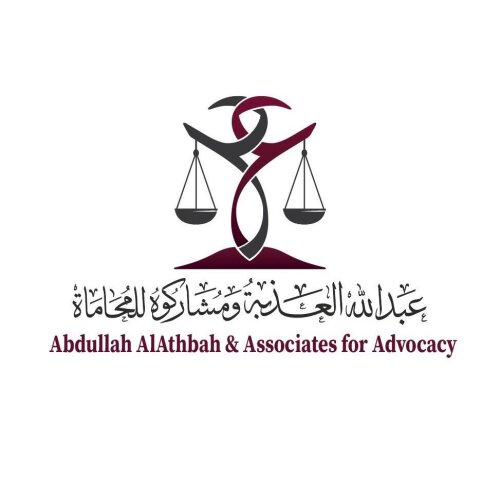Best Accounting & Auditing Lawyers in Qatar
Share your needs with us, get contacted by law firms.
Free. Takes 2 min.
Or refine your search by selecting a city:
List of the best lawyers in Qatar
About Accounting & Auditing Law in Qatar
Accounting and auditing are essential aspects of business operations in Qatar. Companies must comply with relevant laws and regulations to ensure transparency and accuracy in financial reporting. The legal framework governing accounting and auditing practices in Qatar is designed to maintain the integrity of financial information and protect investors.
Why You May Need a Lawyer
There are several situations where you may require legal assistance in accounting and auditing in Qatar. Some common reasons include disputes over financial transactions, compliance issues with accounting standards, regulatory investigations, and audit disputes. A lawyer specializing in accounting and auditing can provide valuable guidance and representation to protect your interests.
Local Laws Overview
In Qatar, accounting and auditing practices are primarily regulated by the Qatar Financial Centre Authority (QFCA) and the Qatar Central Bank. The Companies Law, Commercial Law, and Financial Reporting Standards set the legal framework for accounting and auditing in the country. It is essential to comply with these laws to avoid penalties and legal consequences.
Frequently Asked Questions
Can I perform accounting and auditing functions without a license in Qatar?
No, individuals and firms must obtain a license from the relevant authorities to provide accounting and auditing services in Qatar. Failure to comply with licensing requirements can result in legal action.
What are the penalties for non-compliance with accounting and auditing regulations in Qatar?
Penalties for non-compliance with accounting and auditing regulations in Qatar may include fines, suspension of licenses, and legal consequences. It is essential to adhere to the regulatory requirements to avoid such penalties.
How can a lawyer help me with accounting and auditing issues in Qatar?
A lawyer specializing in accounting and auditing can provide legal advice, representation in disputes, assistance with compliance issues, and guidance on regulatory matters. They can help protect your rights and interests in accounting and auditing-related matters.
What is the role of the Qatar Financial Centre Authority in regulating accounting and auditing practices?
The Qatar Financial Centre Authority (QFCA) is responsible for regulating financial services, including accounting and auditing, in the Qatar Financial Centre. They ensure compliance with international standards and local regulations to maintain the integrity of financial reporting.
Are there any specific accounting standards that companies in Qatar must follow?
Companies in Qatar must comply with International Financial Reporting Standards (IFRS) set by the International Accounting Standards Board (IASB). These standards ensure consistency and transparency in financial reporting across industries and jurisdictions.
What are the key differences between auditing and accounting in Qatar?
Accounting involves recording, classifying, and summarizing financial transactions, while auditing focuses on examining and verifying financial statements to ensure accuracy and compliance with regulations. Both disciplines are essential for financial transparency and accountability.
How can I file a complaint against an accounting or auditing firm in Qatar?
If you have a complaint against an accounting or auditing firm in Qatar, you can contact the Qatar Financial Centre Authority (QFCA) or the Qatar Central Bank to report the issue. They can investigate the matter and take appropriate action if necessary.
What are the requirements for starting an accounting or auditing firm in Qatar?
To start an accounting or auditing firm in Qatar, you must obtain a license from the Qatar Financial Centre Authority (QFCA) or the Qatar Central Bank. You must also comply with regulatory requirements, including professional qualifications and ethical standards.
How can I stay updated on changes in accounting and auditing regulations in Qatar?
You can stay updated on changes in accounting and auditing regulations in Qatar by regularly checking the websites of the Qatar Financial Centre Authority (QFCA), Qatar Central Bank, and other relevant regulatory bodies. You can also seek guidance from legal professionals specializing in accounting and auditing.
What are the best practices for ensuring compliance with accounting and auditing regulations in Qatar?
To ensure compliance with accounting and auditing regulations in Qatar, companies should maintain accurate financial records, follow international accounting standards, conduct regular audits, and seek legal advice when needed. Compliance with regulations is essential for business sustainability and credibility.
Additional Resources
For further information on accounting and auditing regulations in Qatar, you can refer to the websites of the Qatar Financial Centre Authority (QFCA), Qatar Central Bank, and the Institute of Chartered Accountants of Qatar. These resources provide valuable insights and guidance on regulatory requirements in the country.
Next Steps
If you require legal assistance in accounting and auditing in Qatar, it is advisable to seek guidance from a reputable law firm with expertise in financial regulations. A lawyer specializing in accounting and auditing can assess your situation, provide tailored advice, and represent your interests effectively. Remember to comply with regulatory requirements and seek professional help when needed to ensure legal compliance and protect your business interests.
Lawzana helps you find the best lawyers and law firms in Qatar through a curated and pre-screened list of qualified legal professionals. Our platform offers rankings and detailed profiles of attorneys and law firms, allowing you to compare based on practice areas, including Accounting & Auditing, experience, and client feedback.
Each profile includes a description of the firm's areas of practice, client reviews, team members and partners, year of establishment, spoken languages, office locations, contact information, social media presence, and any published articles or resources. Most firms on our platform speak English and are experienced in both local and international legal matters.
Get a quote from top-rated law firms in Qatar — quickly, securely, and without unnecessary hassle.
Disclaimer:
The information provided on this page is for general informational purposes only and does not constitute legal advice. While we strive to ensure the accuracy and relevance of the content, legal information may change over time, and interpretations of the law can vary. You should always consult with a qualified legal professional for advice specific to your situation.
We disclaim all liability for actions taken or not taken based on the content of this page. If you believe any information is incorrect or outdated, please contact us, and we will review and update it where appropriate.
Browse accounting & auditing law firms by city in Qatar
Refine your search by selecting a city.















